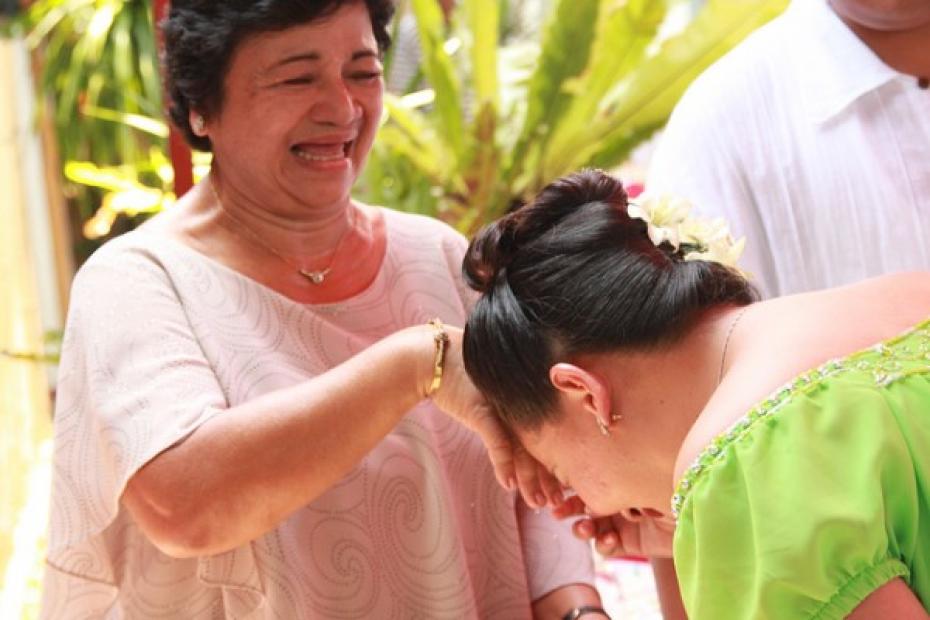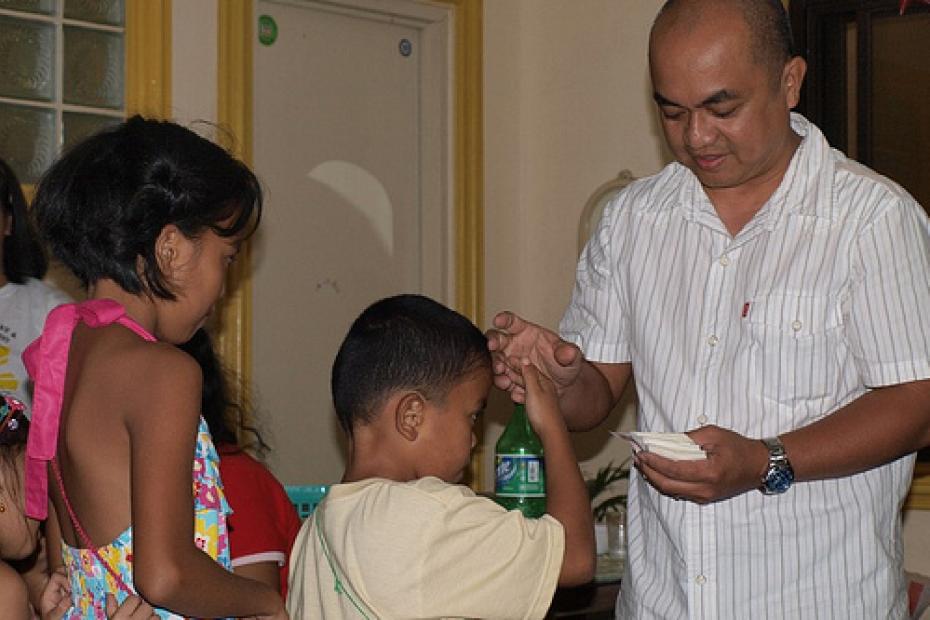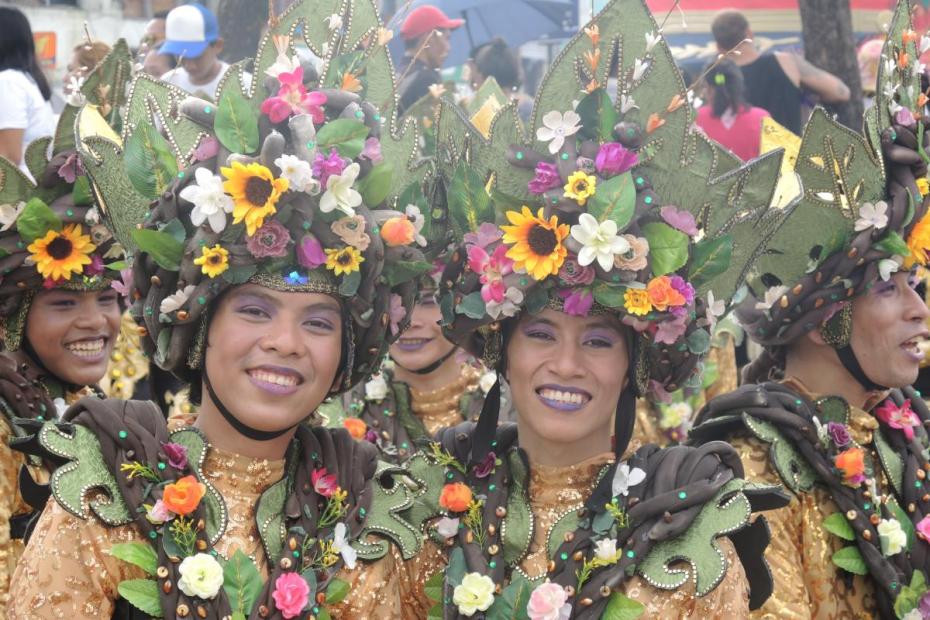People in many contexts in the world often say that family is important to them, but in the Philippines, this seems to be particularly true. On first meeting, an adult visitor is constantly, and quickly, asked, “Are you married?” or “Your wife is not here with you?” Extended family members often gather for family events, and households are frequently multigenerational. There is no shame or surprise to see adults in their 40s living in their parents’ home.
One of the most important gestures symbolizing family bonds is the mano (or pagmamano). On meeting an elder family member, or many other elders, a young person is traditionally expected bow his or her forehead to the elder and raise the elder’s right hand to touch the back of the hand to the forehead. Some young people today kiss the elder on the cheek instead. There is a bit of disagreement about whether this represents some form of cultural decline, but notably the expectation of deference toward elders is ritualized either way.
Filipinos participate in religious events as families, often as extended families. An interviewee in Hong Kong noted this: “In the Philippines, you are sort of swept up with your family to participate in church events. You hardly have to think of it yourself. Everyone is going, and you’d have to decide not to. Here [in Hong Kong] where I’m by myself, I need to make up my mind … do it.”
When interviewed about religious practice, Filipinos tended to report what families do, rather than saying what individuals do. More often than not, the family is the unit of analysis.1
Filipinos who live in Europe and the United States noted a real difference in family culture. In Cebu, one Cebu-born Filipina interviewee who was on a regular visit from her home in the U.S., reported, “In the Philippines, a child who finishes school is expected to come live home with the family, or nearby if married, and to join the family business if there is one. In the U.S., my children are Filipino on the inside — they are dedicated to their family and the Catholic Church — but they are American on the outside. They want some independence to move around and find their own direction. This has been a bit hard for me.”
The Philippines is the only country, other than the Vatican City state, where divorce is illegal. Some women who migrate abroad for work refer to that as “Filipino divorce,” a way not only to earn income, but also to acceptably separate themselves from an abusive or philandering spouse.
Still, gender roles seem to be in flux. Family troubles are said to be a staple of Filipino prayer petitions. El Shaddai interviewees report that members there often seek help because of family crises of various sorts. In ordinary ways, working professionals divide responsibilities for household chores among male and female family members. Women reported that children often do the cleaning, women do shopping, cooking, ironing, and men handle laundry, repairs and care of pets.
Men often work on ships, which take them away from families for long periods of time. Similarly, large numbers of women work overseas as domestic workers and health aides, sending money home and supporting family when a husband fails to provide. In interviews in Hong Kong, many Filipino overseas workers indicated that they had left children at home so that they could work, and that they often had husbands who were not willing to fulfill their traditional roles as breadwinners.
In the dancing and floats of Santo Niño’s Sinulog festival, a significant number of gay and transgender participants had roles, whether as dancers or choreographers.
Read More
Jayeel Serrano Cornelio, Being Catholic in the Contemporary Philippines: Young People Reinterpreting Religion (Abingdon and New York; Routledge, 2016).
Based on interviews with religiously active Catholic college students in the Metro Manila area, the author discovers that the great majority of these students embrace a Catholic world view that is more "creative" than orthodox, focuses on "personal and experiential relationship with God," privileges "right living" over "right believing," and is more open to questioning Church leaders and peers.
- 1 As an American researcher, I was struck from my first visit how many times a research trip that I thought would include one Filipino researcher and me included a whole car full of people, including some who just wanted to come for the ride.


